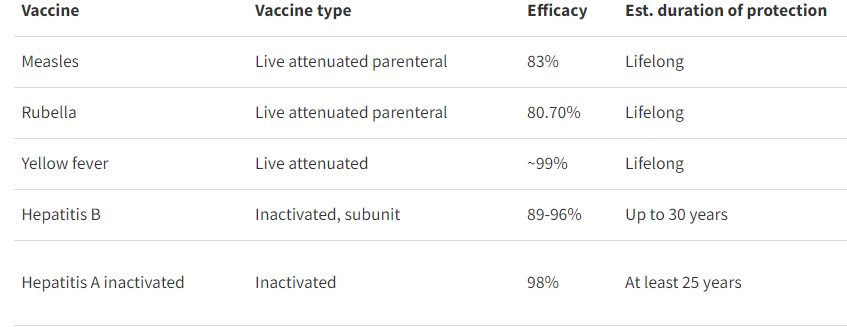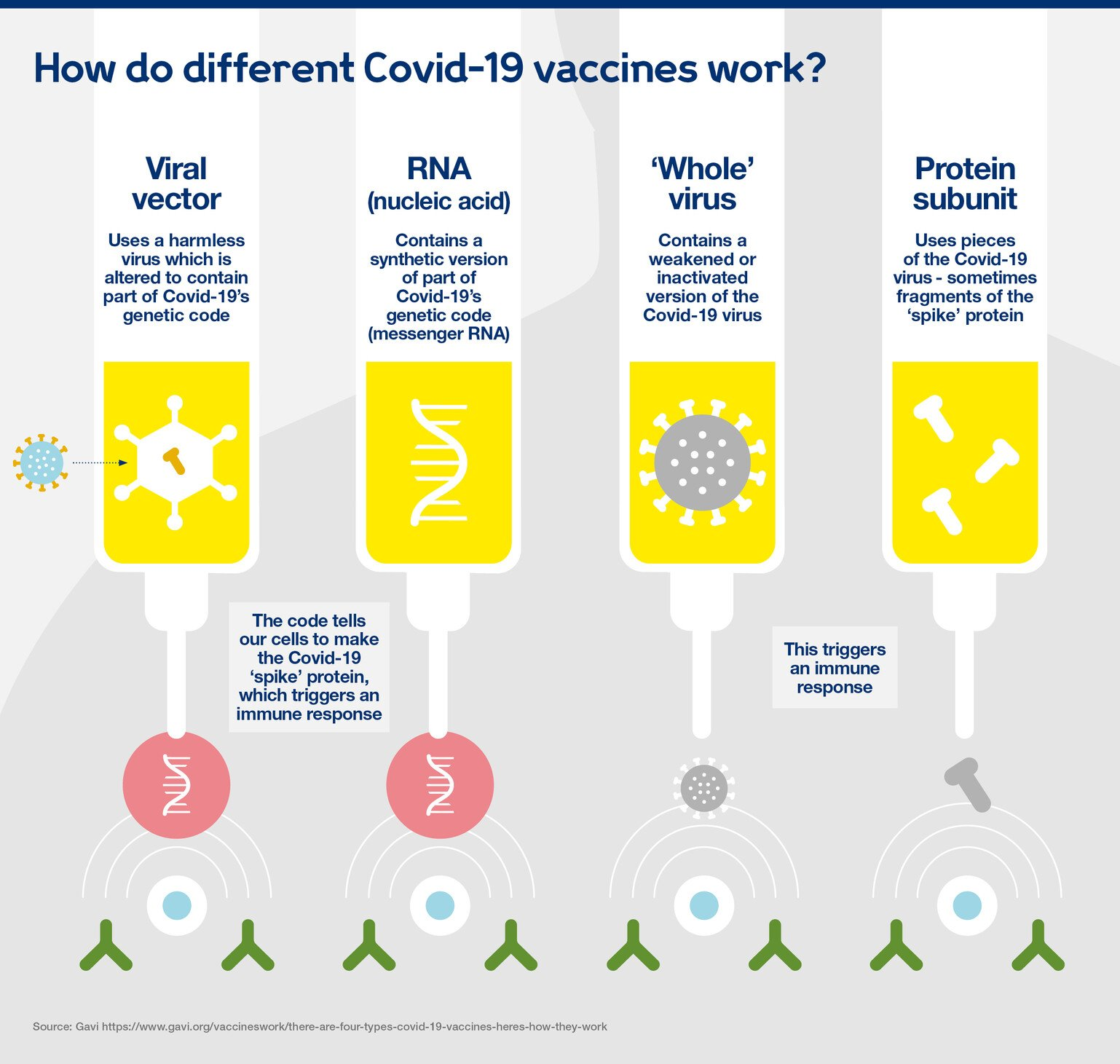Science & Technology
Exploring the Durability of Modern Vaccines
- 10 Apr 2024
- 6 min read
For Prelims: Vaccines, Viruses, Bacteria, Measles, Rubella, Yellow fever, Hepatitis B, Hepatitis A, Memory B cells, T cell, Tetanus, Diphtheria Vaccines, Long-lasting plasma cells (LLPCs), Bone Marrow, Influenza, SARS-CoV-2
For Mains: Vaccines efficacy and its impact on human resources in India.
Why in News?
Recently, in a review of several vaccines, it has been found that only five vaccines provide long-lasting protection spanning more than 20 years and only three provide lifelong protection.
- The variability in vaccine efficacy poses challenges concerning its effectiveness and longevity.
What are Vaccines and Immunological Mechanism?
- About:
- Vaccines are biological preparations designed to stimulate the body's immune system to recognise and fight against specific pathogens, such as viruses or bacteria, without causing the disease itself.
- They typically contain weakened or inactivated forms of the pathogen, parts of the pathogen, or toxins produced by the pathogen.
- Immunological Mechanism :
- Memory B Cells: Formed in lymph nodes after vaccination, they "memorise" antigens and trigger rapid antibody production upon subsequent exposure to the same antigen.
- T Cell Support: Memory B cells require T cell support vaccines that stimulate T cells can induce the production of memory B cells.
- Variability in Vaccine-Induced B Cell Response: Not all vaccines prompt the body to produce memory B cells. Some vaccines require frequent boosters to enhance immunity duration.
- Example: Measles and rubella vaccines maintain constant levels of memory B cells in blood plasma, correlating with antibody levels for decades. However, this is not observed with chickenpox, tetanus, and diphtheria vaccines.
- Long-Lasting Plasma Cells (LLPCs): Migrate to the bone marrow and may endure for decades, playing a crucial role in vaccine-induced immunity.
- LLPCs are essential for lifelong protection, termed the immunology "holy grail." Vaccines aim to generate LLPCs for sustained immunity.
- Some vaccines, like mRNA Covid-19 shots, fail to activate LLPCs in the bone marrow, potentially impacting long-term protection.
- Variability in Vaccine Efficacy: Different vaccines differ in their ability to produce memory B cells and LLPCs, leading to discrepancies in durability and effectiveness.
- Vaccine and its Efficacy:
Vaccine Induced Immunity
- Vaccine immunity, also known as acquired immunity or immunisation, refers to the protection against infectious diseases that is conferred by vaccination.
- When a person receives a vaccine, their immune system is stimulated to recognize and respond to specific pathogens, such as viruses or bacteria, without causing the disease itself.
What Factors Influence the Efficacy of Vaccines?
- Vaccine efficacy is influenced by three primary categories of factors, i.e., vaccine related, pathogen related and host related.
- Vaccine Related:
- Live Viral Vaccinations: It Includes the vaccines for measles, rubella, yellow fever, chickenpox, and polio (oral) provide long lasting protection than killed pathogen or subunit vaccines.
- Interval Between Vaccine Doses: A long interval of at least six months between priming and booster doses is crucial for a robust immune response.
- Target Pathogen Related:
- Pathogens with Mucosal Infections: Viruses causing mucosal infections like SARS-CoV-2 and influenza lead to frequent reinfections due to their quick transmission before the immune system can mount a response.
- Genetic Stability of Virus: RNA viruses like measles and SARS-CoV-2, with high mutation rates, may require vaccine updates.
- Measles vaccine has remained stable, while SARS-CoV-2 vaccines have been updated due to mutations.
- Host-Related Factors:
- Age, Gender, and Obesity: These factors influence vaccine efficacy and duration of immunity. Extreme ages and obesity may lead to shorter-lasting immune responses.
- Vaccine Related:
Initiatives for Taken by Government for Vaccination:
|
Drishti Mains Question: Q.Discuss the immunological mechanisms underlying vaccine-induced immunity and the factors influencing vaccine efficacy. |
UPSC Civil Services Examination Previous Year Question (PYQ)
Prelims:
Q. ‘Mission Indradhanush’ launched by the Government of India pertains to (2016)
(a) immunization of children and pregnant women
(b) construction of smart cities across the country
(c) India’s own search for the Earth-like planets in outer space
(d) New Educational Policy
Ans: A
Exp:
- Mission Indradhanush is an immunization scheme launched by the Ministry of Health and Family Welfare, GoI on 25th December, 2014.
- Depicting seven colors of the rainbow, it aimed to cover all those children by 2020 who are either unvaccinated, or are partially vaccinated against seven vaccine preventable diseases which include diphtheria, whooping cough, tetanus, polio, tuberculosis, measles and hepatitis B.
- The mission is technically supported by WHO, UNICEF, Rotary International and other donor partners. Therefore, option (a) is the correct answer.







